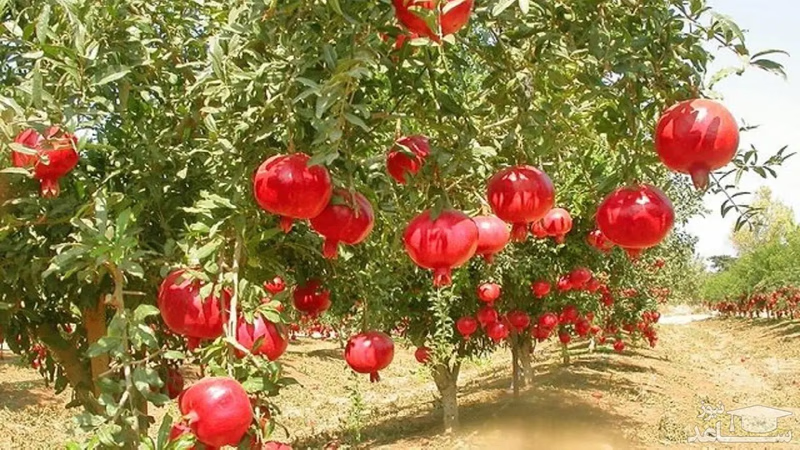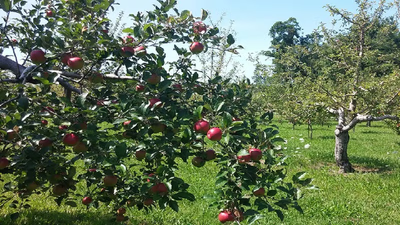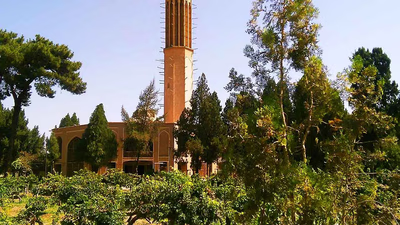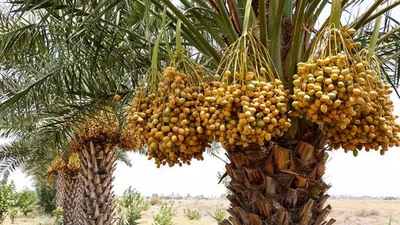
Gardening in West Asia: A blend of culture and economy.
Gardening is considered as an opportunity to relax, watch nature and outdoor activities, and in some countries and cultures it is part of people's daily life style. In the culture of Arabs and Muslims of West Asia, garden and horticulture is known as a valuable activity. Gardens and green spaces in this area are usually used as places for rest, recreation and relaxation. During retirement, people can spend time in their garden, plant their favorite flowers and plants and enjoy nature.
In addition to relaxation and rest, the garden and horticulture are also considered as a physical activity. Planting and maintaining flowers, vegetables and garden products requires physical activity, which can be a healthy and useful activity for retired people. Additionally, gardens and horticulture provide an opportunity to practice and improve gardening skills and encourage people to be outdoors and spend time in nature.
Retirement gardening is also considered an important social activity. People can share their experiences and knowledge with other enthusiasts and enjoy social interaction by participating in gardening groups and associations. Also, gardening can be an opportunity to hold celebrations, ceremonies and family activities that unite and connect retirees and their families.
At the time of retirement for the Arabs and Muslims of West Asia , the garden provides a peaceful and beautiful environment for recreation and relaxation, promotes healthy physical activity, provides an opportunity for social interaction and sharing experiences, and is considered as a spiritual and spiritual activity. Attention is paid. Therefore, the garden and horticulture has an important place in recreation and happiness for the Arabs and Muslims of West Asia during retirement.
Gardening plays an important role in the culture of the Middle East people in providing the food needed by the society. The people of the Middle East have been engaged in agriculture and horticulture since ancient times, and using their experience of several thousand years, they have been able to find optimal methods for cultivating and harvesting crops. As a result, gardens and horticulture are considered as one of the most important sources of food and nutrition in the culture of the people of the Middle East and play an important role in the local and national economy.
In addition to providing food, the garden plays an important role in creating employment and economic development in the culture of Middle Eastern people. Agriculture and horticulture are known as one of the main sources of income and employment of people in this region. Many people in the Middle East work as farmers and gardeners and generate income through farming and selling their products. Also, industries related to gardens and horticulture such as food industry, agricultural products processing and export industries are also effective in creating employment and economic growth in the region.
The garden in the culture of Middle Eastern people also plays an important role in cultural and social aspects. Gardening in some Middle Eastern countries is considered as a traditional activity as well as an opportunity to have fun and relax in nature. Many people enjoy their gardens as a place for walks, picnics and nature viewing. In some cultures, garden and horticulture is considered as a symbol of wealth and prosperity and can represent economic independence and social power.
-

Attracting foreign buyers to orchards requires a strategic approach that combines effective marketing, comprehensive information dissemination, and networking. Key methods include utilizing both online and offline marketing channels, engaging with real estate agencies, and participating in horticultural exhibitions. Providing detailed information about the orchards to potential buyers is crucial for successful transactions. Additionally, advertising in foreign media can enhance visibility among international audiences. Collaborating with local agents in target countries can facilitate access to foreign buyers and streamline the sales process. Offering tourism-related services can further entice buyers by enhancing their experience. It"s important to navigate the varying legal frameworks regarding foreign ownership of orchards in Middle Eastern countries, as regulations differ significantly across the region. Some nations have relaxed restrictions to attract investment, while others maintain stringent laws that may require special permits for foreign buyers.
Overall, a well-rounded marketing strategy that includes building an online presence and leveraging social networks is essential for successfully selling or renting orchards to international clients. "
-

In the arid regions of the Middle East, gardens are strategically designed to optimize limited water resources. Drip irrigation systems are prevalent, allowing for efficient water use by delivering moisture directly to plant roots. Drought-resistant fruits such as pomegranates, dates, and figs are commonly cultivated. Water conservation techniques, including soil coverage with organic materials and composting, help maintain soil moisture and reduce evaporation. Advanced technologies like hydroponics and smart greenhouses further enhance water management and crop yields. The market for garden products in West Asia is influenced by local conditions, laws, and the types of produce grown. High-value crops like saffron and olives can significantly impact a garden"s marketability. Factors such as garden size, geographical location, access to irrigation sources, and proximity to consumer markets play crucial roles in determining value.
Reliable irrigation is essential for successful fruit production in these regions. Additionally, local regulations and economic developments can shape the dynamics of the garden market. "
-

The Middle East offers lucrative opportunities for investing in orchards, particularly in countries like Iran, Turkey, Lebanon, Jordan, and Oman. Key factors for successful investment include geographical location, soil quality, reliable irrigation sources, and proximity to consumption markets. Fertile soil with proper drainage and ventilation is essential for fruit cultivation. Diversification of fruit products can mitigate risks associated with market fluctuations and weather conditions. Each country has unique advantages: Iran boasts a variety of fruits such as apples and dates; Turkey is known for its olives and grapes; Lebanon produces cherries and olives; Jordan excels in dates and lemons; while Oman offers diverse fruits like oranges and hazelnuts. Understanding local market demands is crucial for maximizing returns on investment. Additionally, professional management in horticulture practices enhances the success rate of orchard investments. The potential for exporting these fruits further increases the attractiveness of investing in these regions.
-

Gardening holds significant cultural value in the Arab and Muslim communities of West Asia, serving as a source of relaxation, physical activity, and social interaction. It is a cherished pastime for retirees, allowing them to cultivate plants while enjoying nature and engaging with others in gardening groups. Beyond personal enjoyment, horticulture plays a crucial role in the region"s economy by providing food and employment opportunities. The Middle East has a long history of agriculture, with traditional practices evolving over thousands of years to optimize crop cultivation. Gardens not only supply essential nutrition but also contribute to economic development through related industries such as food processing and export. Additionally, gardens serve as social spaces for gatherings and celebrations, symbolizing wealth and prosperity in some cultures. Overall, gardening is integral to the lifestyle and economy of West Asia, promoting health, community bonding, and cultural heritage. "




